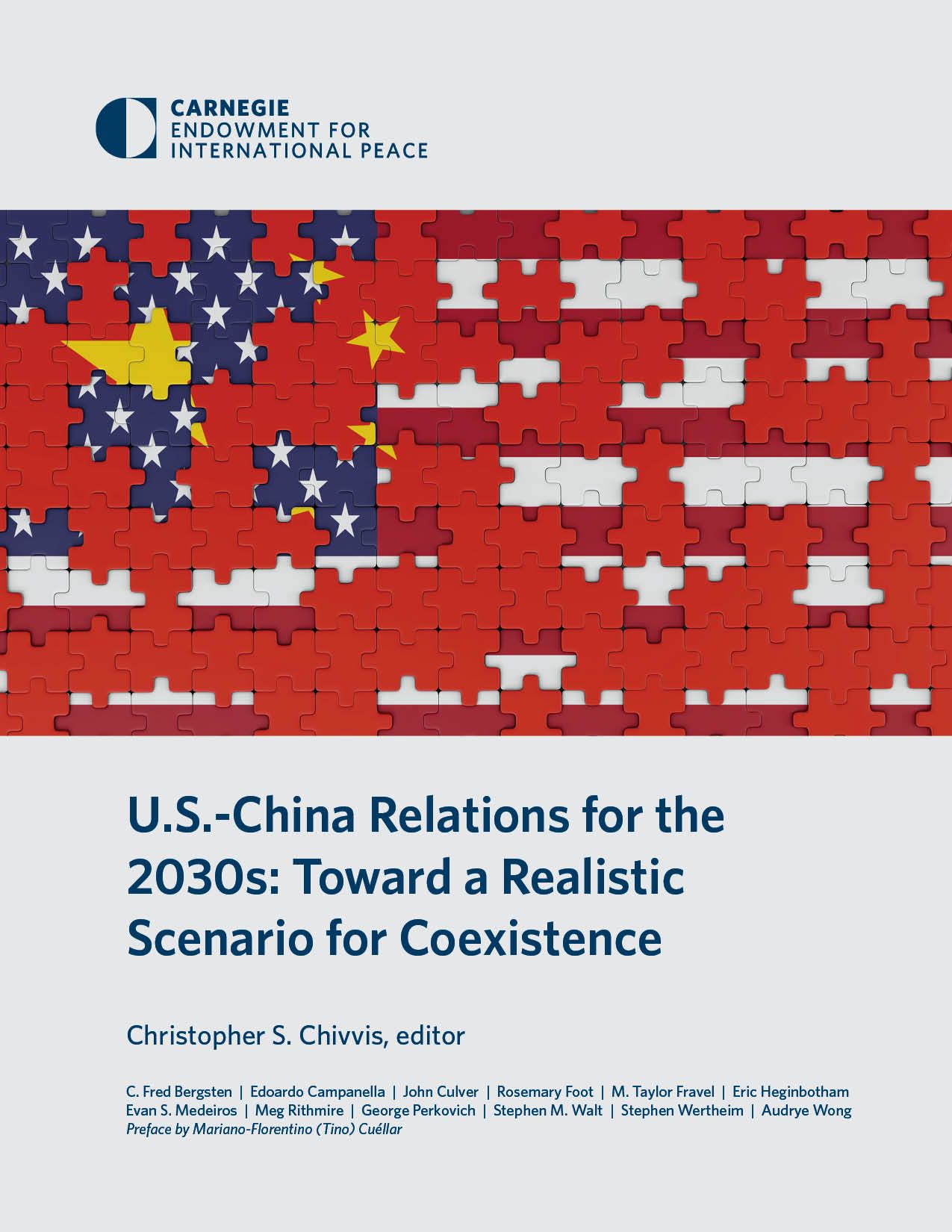Report on Proposed Amendments to Ethiopian Civil Society Law and Implications for Sustainable Development Goals
1.0 Introduction
This report analyzes proposed amendments to Ethiopia’s Civil Societies Organizations Proclamation No. 1113/2019. The amendments, if enacted, would grant the government extensive powers to restrict the activities of non-governmental organizations (NGOs). This action represents a significant regression from the 2019 reforms and poses a direct threat to Ethiopia’s progress towards achieving the Sustainable Development Goals (SDGs), particularly SDG 16 (Peace, Justice and Strong Institutions).
2.0 Key Provisions of the Draft Amendments
The proposed changes would fundamentally alter the operating environment for civil society in Ethiopia. Key provisions include:
- Funding Restrictions: A prohibition on foreign funding for domestic and international organizations engaged in political advocacy, voter education, and election monitoring.
- Increased Government Control: Restructuring the board of the Authority for Civil Society Organizations to give a majority of seats (five out of seven) to government appointees, diminishing civil society representation.
- Arbitrary Powers of Suspension and Dissolution: Granting the Authority the power to deny registration, suspend, or dissolve organizations on ambiguous “national security” grounds without judicial oversight or a right to appeal in court.
- Onerous Bureaucratic Hurdles: Reintroducing a four-year license renewal requirement and mandating prior approval for opening bank accounts, borrowing money, and receiving property.
3.0 Contradictions with SDG 16: Peace, Justice and Strong Institutions
The draft law directly undermines the core principles of SDG 16, which aims to “promote peaceful and inclusive societies for sustainable development, provide access to justice for all and build effective, accountable and inclusive institutions at all levels.”
- Erosion of Fundamental Freedoms (Target 16.10): By restricting organizations involved in election monitoring, voter education, and advocacy, the amendments curtail fundamental freedoms of expression and association. This is occurring within a context of increasing intimidation and harassment of human rights advocates and journalists, further shrinking the civic space essential for public accountability.
- Weakening of Accountable Institutions (Target 16.6): The law reduces the independence of the civil society oversight body and grants discretionary power to suspend organizations without due process. This move away from transparent and accountable governance is contrary to the goal of building effective institutions.
- Undermining Participatory Decision-Making (Target 16.7): Civil society organizations are crucial for ensuring that decision-making processes are responsive, inclusive, and representative. By silencing these groups, particularly ahead of the 2026 national elections, the amendments threaten the integrity of democratic processes.
4.0 Negative Impacts on Inclusive Development Goals
The proposed legislation also presents significant setbacks for other key SDGs focused on inclusivity and partnership.
4.1 SDG 5: Gender Equality & SDG 10: Reduced Inequalities
- The proposed changes to the Authority’s board would eliminate the two seats currently reserved for women’s rights organizations and two for disability rights groups.
- This reversal directly impedes progress on Target 5.5 (ensure women’s full participation and equal opportunities for leadership) and Target 10.2 (promote the social, economic and political inclusion of all).
4.2 SDG 17: Partnerships for the Goals
- The prohibition on foreign funding and technical assistance for election-related work contravenes the spirit of SDG 17, which calls for global partnerships.
- Restricting international collaboration weakens the capacity of domestic CSOs and isolates them from the global development community, hindering the achievement of Target 17.17 (encourage and promote effective public, public-private and civil society partnerships).
5.0 Broader Implications and Recommendations
The crackdown on civil society occurs as Ethiopia faces multiple crises, including armed conflict, regional tensions, and economic hardship. Independent CSOs are critical for monitoring human rights, delivering aid, and providing public scrutiny. Restricting their work will likely exacerbate these challenges and hinder progress across all SDGs, including those related to poverty (SDG 1), health (SDG 3), and economic growth (SDG 8).
5.1 Recommendations
- For Ethiopian Lawmakers: Reject the proposed amendments and ensure any revisions to the civil society law adhere to international human rights standards and support the principles of the SDGs.
- For Ethiopia’s International Partners: Publicly condemn the draft law and the broader crackdown on civic space. Emphasize that a vibrant civil society is a prerequisite for sustainable development and effective partnership.
- For UN and African Commission Special Mechanisms: Urgently assess the draft law’s compliance with international and regional human rights instruments and publicly report on the deteriorating environment for civil society in Ethiopia.
Analysis of SDGs, Targets, and Indicators
1. Which SDGs are addressed or connected to the issues highlighted in the article?
-
SDG 16: Peace, Justice and Strong Institutions
This is the most relevant SDG as the article centers on a proposed law that would weaken civil society, undermine the rule of law, restrict fundamental freedoms, and reduce the accountability and inclusiveness of governmental institutions in Ethiopia. The law grants sweeping powers to the government to restrict, suspend, and dissolve non-governmental organizations (NGOs) without judicial oversight, directly impacting the strength and justice of the nation’s institutions.
-
SDG 5: Gender Equality
The article explicitly mentions that the proposed amendments would remove reserved seats for women’s rights organizations on the board of the Authority for Civil Society Organizations. This change directly impacts women’s participation and representation in decision-making processes concerning civil society, connecting the issue to the goal of achieving gender equality.
-
SDG 10: Reduced Inequalities
The article notes that the proposed law would eliminate reserved seats for disability rights groups on the Civil Society Authority’s board. This action represents a direct setback to the political inclusion of persons with disabilities. By targeting specific groups and creating discriminatory hurdles, the law promotes inequality rather than reducing it.
2. What specific targets under those SDGs can be identified based on the article’s content?
-
SDG 16: Peace, Justice and Strong Institutions
- Target 16.3: Promote the rule of law at the national and international levels and ensure equal access to justice for all. The article highlights that the draft law would allow for the suspension or dissolution of organizations without “judicial oversight and the right to appeal,” which directly undermines the rule of law and access to justice.
- Target 16.6: Develop effective, accountable and transparent institutions at all levels. The proposed amendments increase government control over the Civil Society Authority by giving a majority of board seats to government officials. This reduces the institution’s independence, accountability, and transparency.
- Target 16.7: Ensure responsive, inclusive, participatory and representative decision-making at all levels. The article states that the new law would shrink civil society representation on the Authority’s board from seven seats to two, eliminating specific representation for women’s and disability rights groups. This makes the decision-making process less inclusive and representative.
- Target 16.10: Ensure public access to information and protect fundamental freedoms, in accordance with national legislation and international agreements. The core of the article discusses a crackdown on fundamental freedoms, including the freedom of association for civil society groups and media freedom. The proposed law restricts political advocacy, voter education, and election monitoring, while amendments to the media law increase government control over journalists.
-
SDG 5: Gender Equality
- Target 5.5: Ensure women’s full and effective participation and equal opportunities for leadership at all levels of decision-making in political, economic and public life. The article points out that the proposed changes “would do away with the more inclusive representation in the current law, which reserved seven seats for civil society groups, including two representing women’s rights organizations.” This directly curtails the participation and leadership of women in the public life related to civil society governance.
-
SDG 10: Reduced Inequalities
- Target 10.2: Empower and promote the social, economic and political inclusion of all, irrespective of… disability… or other status. The removal of “two [seats] from disability rights groups” from the Civil Society Authority’s board is a clear example of reducing the political inclusion of persons with disabilities.
- Target 10.3: Ensure equal opportunity and reduce inequalities of outcome, including by eliminating discriminatory laws, policies and practices. The proposed law is described as a “draconian” policy that imposes “onerous bureaucratic hurdles” and restrictions on specific types of organizations (e.g., those working on governance or receiving foreign funds), thereby creating discriminatory practices and inequality of opportunity.
3. Are there any indicators mentioned or implied in the article that can be used to measure progress towards the identified targets?
-
Indicators for SDG 16
- For Target 16.10: The article provides data relevant to Indicator 16.10.1 (Number of verified cases of… arbitrary detention… of journalists… and human rights advocates). It states that authorities have “arbitrarily arrested independent or critical voices, including journalists and political opposition members.” It also reports that “at least 54 journalists and media workers had gone into exile since 2020.” The existence of the proposed civil society law and the amendments to the media law serve as a negative indicator for 16.10.2 (adoption of policies guaranteeing public access to information).
- For Target 16.7: The article provides a clear, measurable indicator for progress (or regression) related to Indicator 16.7.1 (Proportions of positions in national… institutions… by sex, persons with disabilities). The composition of the Civil Society Authority’s board is changing from seven civil society seats (including two for women and two for disability groups) to just two, with government officials holding the majority.
- General Indicators for Civic Space: The article provides quantifiable data on the shrinking civic space. It mentions that authorities have “suspended five prominent human rights groups” and “closed 1,504 civil society organizations” for failing to submit reports. These numbers serve as direct indicators of the health of civil society.
-
Indicators for SDG 5
- For Target 5.5: A direct indicator is the number of seats reserved for women’s rights organizations on the Civil Society Authority’s board. The article states this number will be reduced from two to zero under the proposed amendments, indicating a regression in women’s participation in decision-making.
-
Indicators for SDG 10
- For Target 10.2: A direct indicator is the number of seats reserved for disability rights groups on the Civil Society Authority’s board. The article states this will be reduced from two to zero, indicating a decline in the political inclusion of persons with disabilities.
4. Summary Table of SDGs, Targets, and Indicators
| SDGs | Targets | Indicators Identified in the Article |
|---|---|---|
| SDG 16: Peace, Justice and Strong Institutions |
16.3: Promote the rule of law and ensure equal access to justice.
16.6: Develop effective, accountable and transparent institutions. 16.7: Ensure responsive, inclusive, and representative decision-making. 16.10: Ensure public access to information and protect fundamental freedoms. |
– Denial of the “right to appeal” in court for suspended organizations. – Government officials to hold 5 out of 7 seats on the Civil Society Authority’s board. – Reduction of civil society board seats from 7 to 2. – Suspension of 5 prominent human rights groups. – Closure of 1,504 civil society organizations. – At least 54 journalists have gone into exile since 2020. – Arbitrary arrests of journalists, human rights advocates, and opposition members. |
| SDG 5: Gender Equality | 5.5: Ensure women’s full participation and equal opportunities for leadership in decision-making. | – Elimination of the 2 reserved seats for women’s rights organizations on the Civil Society Authority’s board. |
| SDG 10: Reduced Inequalities |
10.2: Empower and promote the social, economic and political inclusion of all, irrespective of disability.
10.3: Ensure equal opportunity and eliminate discriminatory laws and policies. |
– Elimination of the 2 reserved seats for disability rights groups on the Civil Society Authority’s board. – Introduction of a law with “onerous bureaucratic hurdles” and “intrusive surveillance” targeting civil society groups. |
Source: hrw.org







